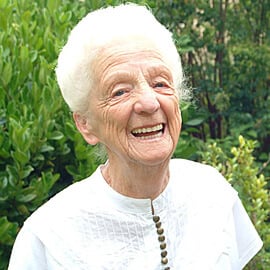When you buy into a village, you enter a contract to live in the village. You do not buy the house itself. This is because, unlike normal property development, you are also contracting with the village builder to stay on and operate the village for the next 30-plus years, to in effect look after you and your home as you age.
They also have to provide expensive community centres, big gardens, swimming pools and still make the price of the village home affordable to the market. Their solution is not to sell the title to the home but to hold it for themselves, which is their security. If they sold the title to the home, they would have to pay back the bank that provided the finance to build the village and move on. To cover the title issue, the industry (including nearly all charities) has developed the ‘loan / lease' or ‘loan / licence' system - where you rent or lease the home.
Why you can't just buy your home in the village? The ‘Loan / Licence' and the ‘Lease / Licence' systems have been developed over 30 years to make village communities more affordable and generous in their facilities.
Typically, half the cost of building a village is the homes and half is the community facilities. Literally buying your village home would mean you would have to pay for a proportion of all the facilities - the swimming pools, community centres, road systems and so on. Clearly, ‘buying' rather than ‘leasing' would cost twice as much.
The attraction of village communities, moreover, is that the operator stays in place as you age and is responsible for both maintaining the village and keeping a watchful eye on you, the resident. The operator's incentive to stay is their continued ownership of the village.
The alternative to this system is the gated community or apartment building where residents manage affairs under a body corporate system. Given that residents are ageing and increasingly vulnerable, this system could easily break down over time, with the best interests of everybody likely to be eroded. Another major benefit is that villages operate under the Retirement Villages Act in every state. This gives residents considerable legislative reassurance that their affairs and welfare are the first priority of the operator. This is lacking from all the alternatives.
What are the costs?
There are two costs to living in a village. The first is a weekly levy, which is your portion of the operational costs or day-to-day expenses of running the village. This covers everything from the electricity to run the street
lights, maintenance of the gardens and pool, the village manager's wage and so on. Weekly levies range between $50 and $150 per week or more - the cost can be kept low because it is spread across all residents and villages are designed carefully to keep maintenance down. Under the Retirement Villages Act, residents have input into what expenses will be incurred by the village. Law dictates that most expenses should not increase by more than the CPI. The benefit is that you know what your weekly expenses are going to be in advance, not only for the next 12 months but well into the distant future.
The second cost of living in a village community is the Departure Management Fee (DMF). This is paid when you depart the village so it does not affect your weekly budget. The DMF is a form of rent that is deducted from the lump sum you paid when you entered the village. There is no standard formula for the DMF, but it generally works out at between 2.5 and 3.5 percent for each year that you live in the village and is often capped at around 10 years (i.e. 25 to 35 percent). So if you paid $400,000 upfront and lived in the village for 12 years with a three percent DMF fee, you would pay 10 times three percent, or 30 percent of $400,000 ($120,000) as your DMF. In effect, this means your ‘rent' was $10,000 per year or $190 per week. As your village home is usually your last home, the DMF does not really
affect you but it will reduce the amount that is passed on to your estate.
What about capital gain?
Many people ask about the capital gain in the value of a home over the 12 years. Are you entitled to it or does the operator - as the owner - keep it, just like a normal rental property. Again, every village is different, but
most do share the capital gain with you. A common ratio is 60 percent being retained by the operator and 40 percent being passed on to you or your estate. Using our example of $400,000 and a three percent DMF fee, and assuming the property doubles in price over 12 years, your estate would receive $400,000 less $120,000 DMF, plus 40 percent of the capital gains, being $160,000. Therefore the payout to your estate would be $440,000.
Is this a financialy sound deal?
You have to make up your own mind, but the factors to consider are:
- Most people sell the family home for more than the cost of their new village home, releasing cash to better enjoy their later years and pay for medical supportrequired in the final ones.
- If you sold the family home for $800,000 and 'bought' your village home for $400,000 and had the $400,000 in cash and deposited it in a bank for over 12 years, after tax on the interest your return would earn almost $250,000 to live on.
- Most family homes are ageing as well. Many people find their new village home offers a better living environment,a new kitchen, entry from the garage, connections to the Internet - things they may not have had previously.
- Most family homes increasingly demand maintenance as they age, often beyond the physical ability of older owners and requiring significant funds.
- Few family homes are designed to be safe for ageing people. Steps, uneven surfaces, upstairs bedrooms and long or steep driveways can be very dangerous.
- The reality of ageing, especially for couples, entails health considerations. One partner's health usually declines first with the other becoming the carer. Will the family home be suitable i.e. can doors be widened and bathrooms adapted for a walking frame? Is help and companionship close by?
- Equally important is planning for the remaining partner. Will they have companionship and support or will they be isolated and disconnected from the community?
In the end, what is the true measure of ‘quality of life' in your later years? Is it the money, which you can pass on to your estate, or is it other things like security and companionship?
What research says: Both Australian and international research consistently tells us that people who live in a village community enjoy a higher quality of life and live considerably longer than people who remain in their family home. The main contributors can be summarised as companionship and a safe, planned environment. Nearly every resident of a village community will also offer the advice that it is better to make the move earlier rather than later. It is easier to deal with the process of selling up and moving and it gives more time to build relationships within the village. They also add you never know what is just around the corner.






